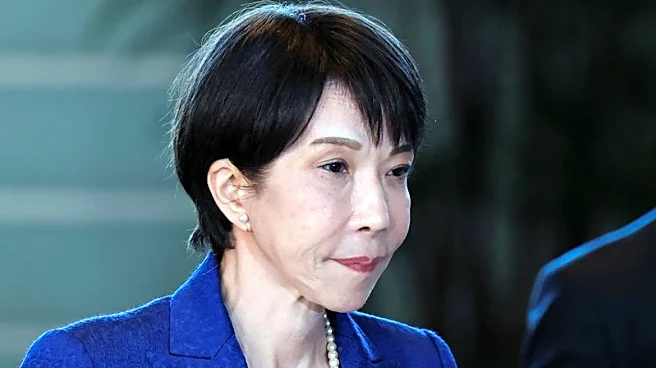What is the story about?
What's Happening?
The International Olympic Committee (IOC) has reallocated medals from the 2010 Vancouver and 2014 Sochi Winter Olympics due to confirmed doping violations by Russian biathlete Evgeny Ustyugov. Martin Fourcade of France, who finished second in the 15-kilometer mass start event in Vancouver, has been awarded a gold medal, marking his sixth Olympic gold. Additionally, Norwegian biathlon legend Ole Einar Bjorndalen receives a bronze medal from the 2014 Sochi men's relay, extending his record as the most decorated male athlete in Winter Games history with 14 medals. The Court of Arbitration for Sport confirmed Ustyugov's blood doping, leading to his disqualification in five Olympic events and allowing the IOC to redistribute medals to rightful winners.
Why It's Important?
This decision underscores the ongoing efforts to maintain integrity in sports by addressing past doping violations. The reallocation of medals not only corrects historical records but also impacts the legacy of athletes like Martin Fourcade and Ole Einar Bjorndalen, who are now recognized for their achievements without the shadow of unfair competition. It highlights the importance of anti-doping measures and the role of international sports bodies in ensuring fair play. The decision also affects national standings, with countries like Norway and Germany receiving upgraded medals, which can influence national pride and future funding for winter sports programs.
What's Next?
The IOC's decision may prompt further scrutiny of past Olympic results, potentially leading to more medal reallocations if additional doping cases are confirmed. Athletes affected by these changes may receive their updated medals at future Olympic events, such as the upcoming Winter Games in Milan and Cortina d’Ampezzo. This could also lead to increased advocacy for stricter anti-doping regulations and more comprehensive testing protocols to prevent similar issues in future competitions.
Beyond the Headlines
The reallocation of medals raises ethical questions about the long-term impact of doping on athletes' careers and the fairness of competition. It also highlights the challenges faced by sports organizations in balancing the need for transparency with the protection of athletes' reputations. The decision may influence cultural perceptions of sportsmanship and integrity, encouraging a shift towards more rigorous enforcement of anti-doping policies.
















